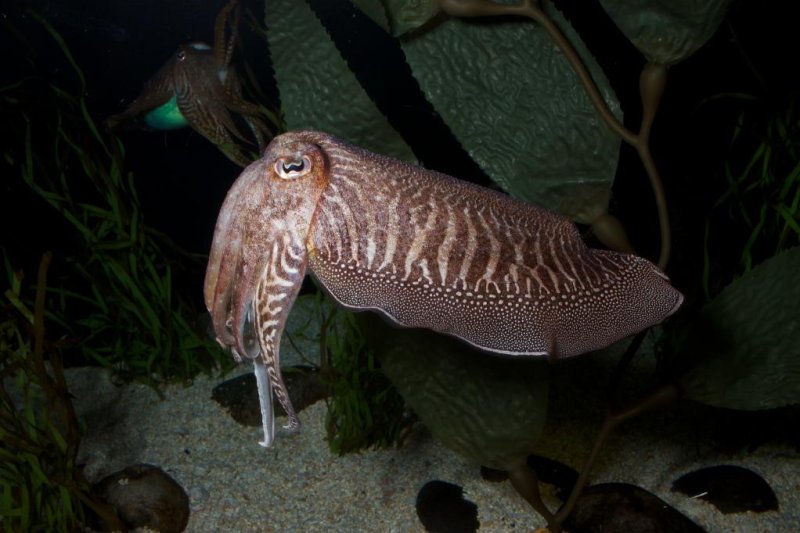The European Cuttlefish can pick up on food availability patterns and adjust their feeding behavior accordingly. Photo by Brian Gratwicke/
Flickr
Feb. 5 (UPI) -- When cuttlefish know their favorite food, shrimp, is on the dinner menu, they eat fewer crabs throughout the day, according to a new study.
The findings, published Wednesday in the journal Biology Letters, offer proof that cuttlefish can learn from their experiences, recognizing feeding patterns, and adjust their eating habits accordingly.
"It was surprising to see how quickly the cuttlefish adapted their eating behavior -- in only a few days they learned whether there was likely to be shrimp in the evening or not," Pauline Billard, a doctoral student in the psychology department at the University of Cambridge, said in a news release. "This is a very complex behavior and is only possible because they have a sophisticated brain."
Cuttlefish alternate between two different feeding modes, selective or opportunistic. In lab experiments, scientists regularly provided specimens of European common cuttlefish, Sepia officinalis, with a single shrimp each evening.
The cuttlefish quickly picked up on the pattern and began eating fewer crabs during the day. When the cuttlefish knew they could count on a shrimp dinner, they were more selective.
When researchers only provided shrimp sporadically, the cuttlefish were more opportunistic, eating more crabs throughout the day.
Though cuttlefish are generalist eaters, they also show strong food preferences. Researchers were able to determine the cuttlefish's favorite food by placing crab and shrimp at equal distances from the test specimens. The cuttlefish consistently consumed the shrimp first.
Like their cephalopod relatives, cuttlefish are born with an already well-developed central nervous system, allowing them to begin learning from their experiences and recognizing patterns at a young age. Scientists suspect the cognitive abilities of the cuttlefish allow the animals to adapt to changing environmental conditions.
Though cephalopods, a group of mollusks that include octopi and squid, diverged from vertebrates some 550 million years ago, their central nervous systems are organized similarly.
"This flexible foraging strategy shows that cuttlefish can adapt quickly to changes in their environment using previous experience," said study leader Nicola Clayton, professor of psychology at Cambridge's Department of Psychology. "This discovery could provide a valuable insight into the evolutionary origins of such complex cognitive ability."















